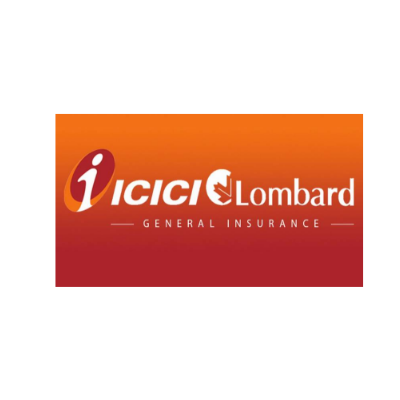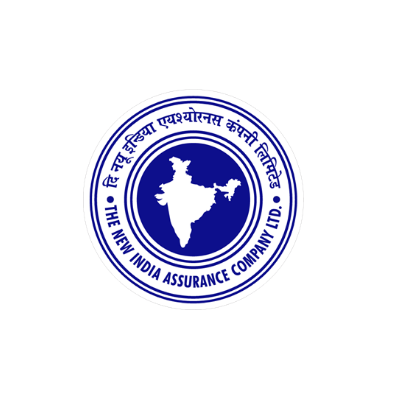INSURANCE FOR RETIREES OR PENSIONERS
Pension or retirement insurance plans, which are a component of investment plans, are especially created to meet your financial demands and expectations after retiring. With the help of these plans, you may pay for any unanticipated medical crises as well as your daily expenses. By making regular investments during their earning years, one can simply protect their financial future with the aid of retirement plans. Let's learn more about the top pension plans available in India, which will not only help you keep your financial independence but will also enable you to adjust to inflation without sacrificing your standard of living.
What Is A Pension Or Retirement Insurance Plan?
A pension or retirement insurance plan is a form of investing strategy that aids in long-term accumulation of funds for a stable financial future. It guarantees a consistent income stream after retirement and aids in coping with post-retirement uncertainty. A pension plan is essential even if a person has a sizable amount of savings.
A pension plan enables you to build a long-term financial buffer so you can make sure you have a secure financial future after retirement. The insured in a retirement insurance plan is required to make a set number of regular contributions up to retirement.
The insured receives periodic payments from the cumulative amount in the form of a pension or annuity. Pension plans not only safeguard a person's financial security after retirement, but also aid in preparing for unforeseen circumstances.
Savings quickly run out and are occasionally needed for emergencies. Therefore, it is crucial to pick the finest pension plan in order to ensure that you will have enough money after retirement to cover your basic living expenses. When you consistently contribute to a pension plan, the money grows thanks to the power of compounding, which has a significant impact on your eventual savings corpus.
What Are Different Types of Pensions Or Retirement Insurance Plans in India?
There are many different pension plans on the market to meet the needs of insurance buyers. Based on the benefits and plan structure, these plans can be categorised in a number of ways. These pension schemes can be further broken down into the following eight groups:
- Immediate Annuity
- Deferred Annuity
- With Cover and Without Cover Pension Plans
- Annuity Certain
- Life Annuity
- Guaranteed Period Annuity
- Pension Funds
- National Pension Scheme (NPS)
- Defined Benefit
- Whole Life ULIPs
- Defined Contribution
What Is the Best Insurance For Pensioners Or Retirement Insurance Plans In India?
Here is a list of Best Pension Plans in India-
- Aditya Birla Sunlife Empower Pension Plan
- Aegon Life Guaranteed Income Advantage Plan
- Aviva Next Innings Pension Plan
- Bajaj Life-Long Goal Pension Scheme
- Canara HSBC Invest 4G Whole Life
- Pramerica Life Golden Age Plus
- Edelweiss Tokio Life -Wealth Ultima
- Exide Life Golden Years Retirement Plan
- Future Generali - Big Dreams Pension Scheme
- HDFC Life Click 2 Retire
- HDFC Life Pension Super Plus
- HDFC Life Personal Pension Plus
- ICICI Pru Easy Retire Pension Scheme
- ICICI Pru Easy Retirement Plan
What Are the Retirement Pension Plans' Characteristics and Advantages?
Nowadays, people begin making early preparations for retirement life so they won't need to rely on others for support in their later years.If you decide to choose an insurance for retirees, be sure it contains the following characteristics:
1. Annuity
The annuity, which typically comes in two varieties—immediate annuity and deferred annuity—is the most distinguishing element of a pension plan. An immediate annuity begins right away, as the name implies. As soon as the insurance company receives the lump sum premium, it immediately pays the pension plan annuity amount. The insurance firm can use the money invested by the policyholder in an instant annuity pension fund to create a corpus by accepting a single premium payment.
After a few years, the delayed annuity pension plan begins to pay a fixed amount. The insurance firms provide a wide variety of plan alternatives for various terms that let the policyholder select the duration of the annuity they want to receive.
2. Assured Sum
The sum assured is an upfront sum made available to the insured for the duration of the policy. Under a cover insurance for retirees, the sum assured amount is often provided as a death or maturity pay-out. The methods used by insurance firms to calculate the sum assured vary.
Some pension plans set the sum assured at 10 times the annual premium, while others might offer a sum assured equal to the fund value of the policy that the person chooses. The plan is more akin to a pure pension plan than it is to an insurance plan with a pension scheme if there is no sum promised.
3. Accumulative Phase
The premium can be paid by the investors either all at once as a lump sum investment or over time. The premium invested builds up over a lengthy period of time to provide a future financial safety net. The accumulation duration of the pension plan will be 30 years if you begin saving at age 30 and keep doing so until you are 60. This corpus is mostly where your pension for the selected term comes from.
4. Giving Up Value
The amount that an individual will get from an insurance company if they surrender a pension plan before it matures and have paid the required minimum premiums is known as the surrender value. All benefits provided by the pension plan, including the life insurance, if any, are forfeited by the insured when they surrender the pension plan.
5. Age of Vesting
The age at which investors can start receiving their monthly pension is known as the vesting age. For instance, the majority of insurance for retirees is a 45- or 50-year minimum vesting age. Up to the age of 70, a pension plan's vesting age is adjustable. Some insurance companies, however, let the vesting age be as high as 90 years old.
6. Payment Interval
The payment period, as its name implies, begins when the investor begins receiving payments after retirement. For instance, if a person receives a pension between the ages of 60 and 75, the pension plan's payment duration will be 15 years. The accumulation phase and payment period are typically kept apart in pension schemes. Some pension plans, however, allow permit partial or full withdrawal during accumulation.
Why Should You Begin Retirement Planning Now?
- More wealth may be built over a lengthy period of time to provide a secure future after retirement the earlier you begin planning for it. Let's examine the reasons why you ought to begin your retirement planning right away.
- You will be able to meet the financial needs of the family with the aid of the retirement plan in India because it will give you a source of income after retirement.
- Financial or medical emergencies can be handled in the future with the assistance of retirement savings.
- One of the most significant benefits of retirement planning is the ability to retire stress-free because you won't be dependent on anyone.
- You may maintain a good standard of living after retirement with careful preparation and investment in the right pension plan, and you can even satisfy your unfulfilled ambitions from earlier in your life.
- You can guarantee a guaranteed income after retirement as an annuity to cover your monthly costs with the aid of pension funds in India.
FAQs
Q1. What is an annuity?
Ans: An annuity is a recurring payment you get from your pension plan when you retire. The annuity can be used on a monthly, quarterly, half-yearly, or annual basis.
Q2. Why do I require pensions or retirement plans?
Ans: When you enter the phase of your life where you are no longer receiving payments, a pension plan ensures a steady income. The ideal time to indulge in leisure activities may be during retirement. After retirement, a pension plan pays for your to-do lists. An excellent strategy to maintain financial independence in your later years is through a pension plan.
Q3. How can I figure out my retirement fund?
Ans: You can use a retirement calculator to accomplish that. The calculator needs the following information to calculate an ideal corpus. Age at which you anticipate to retire Current cost of living (monthly expenses) Current inflation rate Expected number of years to live after retirement.
Q4. What is the phase of accumulation?
Ans: In order to earn a pension after retirement, you must pay regular insurance premiums to the insurance provider during this time.




































